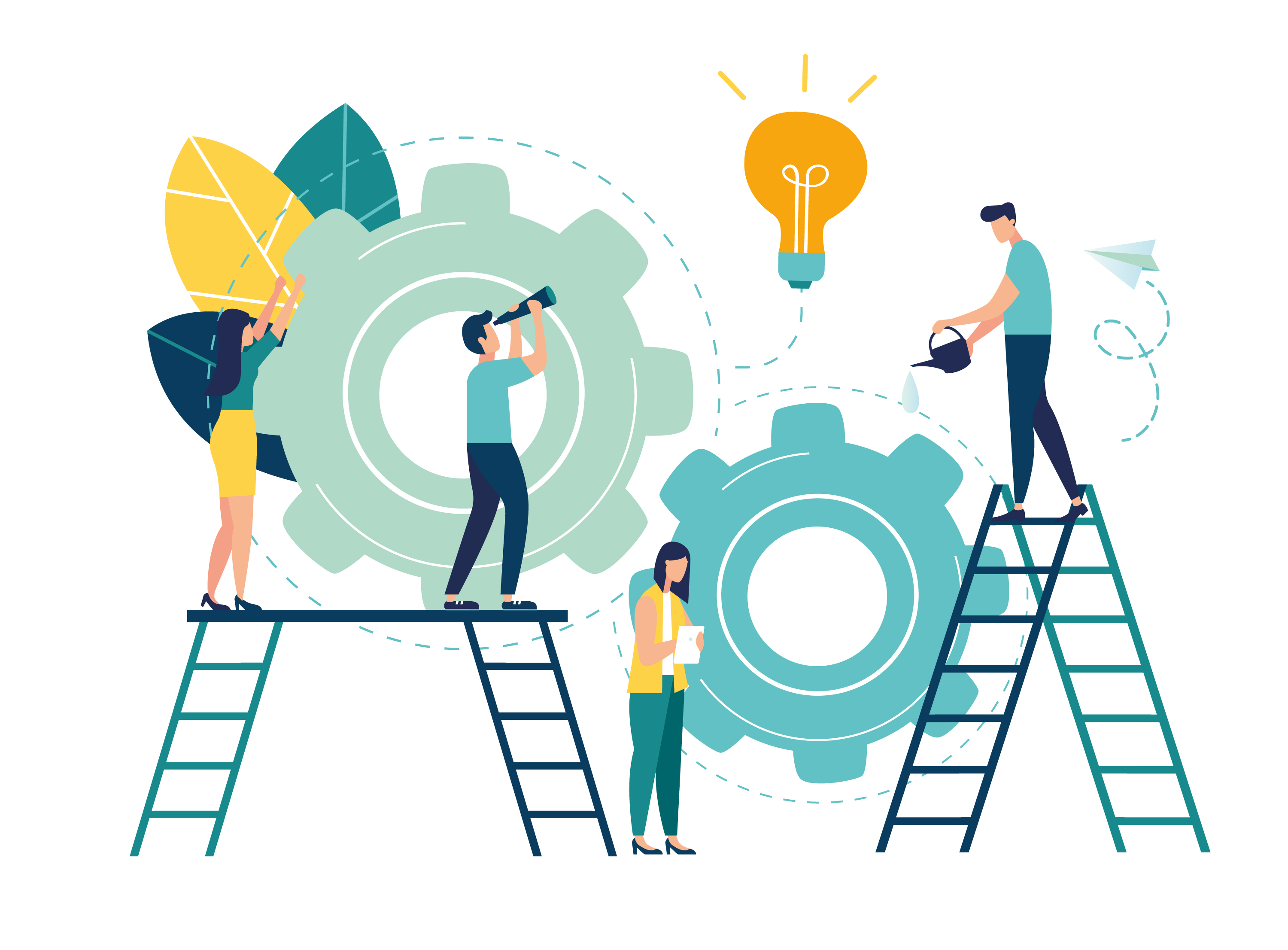Challenges and Opportunities in Engineering and Technology
Navigating complexities and embracing possibilities in the evolving technical landscape
The Evolving Landscape of Engineering
The engineering and technology sectors are experiencing unprecedented transformation. Digital disruption, climate change imperatives, and shifting economic forces are reshaping how engineers approach problems and develop solutions. At Al Mithaq Institute, we prepare professionals to navigate these changes by understanding both the challenges they present and the opportunities they create.
This article explores the major obstacles facing today's engineers alongside the exciting possibilities emerging in various fields. By developing awareness of these dynamics, engineering professionals can position themselves strategically for future success.
Key Challenges & Opportunities at a Glance
Critical Challenges
- Sustainability requirements and carbon reduction
- Rapid technological obsolescence
- Complex interdisciplinary problems
- Cybersecurity vulnerabilities
- Skills gap and talent shortage
Emerging Opportunities
- Artificial intelligence and machine learning integration
- Renewable energy innovations
- Smart infrastructure development
- Advanced manufacturing technologies
- Cross-disciplinary collaborations
Major Challenges in Modern Engineering
1 Sustainability Imperatives
Engineering disciplines face unprecedented pressure to address climate change and environmental degradation. This challenge manifests in several ways:
- Meeting stringent carbon reduction targets without compromising performance
- Designing for circular economy principles (reuse, recycle, remanufacture)
- Balancing environmental considerations with economic constraints
- Retrofitting existing infrastructure for improved sustainability
- Developing new materials and processes with minimal environmental impact
Engineers who master sustainable design principles and carbon-efficient methodologies will be increasingly valued across all sectors.
2 Accelerating Technological Change
The pace of technological advancement creates significant challenges:
| Challenge | Impact | Required Response |
|---|---|---|
| Technical obsolescence | Systems and skills becoming outdated more quickly | Continuous learning and adaptable design approaches |
| Integration complexity | Difficulty connecting legacy and new systems | Modular architectures and interface standards |
| Digital transformation | Need to reimagine traditional processes | Digital literacy and process innovation |
| Knowledge management | Information overload and knowledge silos | Effective knowledge sharing systems |
3 Cybersecurity and Digital Vulnerabilities
As systems become more connected, security challenges intensify:
Critical Infrastructure Protection
Energy grids, water systems, and transportation networks face unprecedented cyber threats that could cause physical damage and endanger lives.
IoT Device Security
The proliferation of IoT devices creates numerous potential entry points for cyberattacks in industrial and consumer settings.
Data Privacy Engineering
Engineers must now design systems that protect personal and sensitive data while maintaining functionality and user experience.
Engineering curricula and professional development programs, including those at Al Mithaq Institute, must increasingly incorporate security-by-design principles and threat modeling approaches.
4 Talent and Skills Gap
The engineering profession faces significant workforce challenges:
- Shortage of qualified professionals in emerging specialties
- Rapidly changing skill requirements that outpace traditional education
- Need for both technical depth and multidisciplinary breadth
- Growing importance of "soft skills" alongside technical expertise
- Global competition for top engineering talent
At Al Mithaq Institute, our specialized programs in Civil Engineering Skills, Electrical Engineering Skills, and Software Engineering are designed to bridge these gaps, providing professionals with the integrated skillsets needed in today's complex engineering environment.
Transformative Opportunities
Despite the challenges, this era offers unprecedented opportunities for engineering innovation and impact:
Artificial Intelligence & Automation
AI and machine learning are revolutionizing engineering processes:
- Generative design that explores thousands of options
- Predictive maintenance reducing downtime
- Autonomous systems for dangerous environments
- Optimization of complex systems and processes
Key Skills: Machine learning, data analysis, systems integration, ethical AI development
Sustainable Energy Systems
The clean energy transition creates numerous opportunities:
- Advanced renewable energy technologies
- Energy storage innovations
- Smart grid development and optimization
- Building energy management systems
Key Skills: Power systems, energy conversion, control systems, renewable integration
Advanced Materials & Manufacturing
New materials and production techniques are transforming industries:
- Additive manufacturing/3D printing at scale
- Nanomaterials with novel properties
- Biomimetic and self-healing materials
- Digital twin technology for manufacturing
Key Skills: Material science, production engineering, modeling and simulation
Resilient Infrastructure
Creating infrastructure that withstands emerging challenges:
- Climate-adaptive design approaches
- Smart city technologies and systems
- Infrastructure monitoring and early warning
- Modular and rapidly deployable solutions
Key Skills: Civil engineering, sensing technologies, data analytics, risk assessment
Cross-Cutting Opportunity: Interdisciplinary Collaboration
Many of today's most significant opportunities exist at the intersection of traditional disciplines. Engineers who can work effectively across boundaries will be positioned for success.
Mechatronics
Blending mechanical, electronic, and software engineering for advanced robotics and automation systems
Bioengineering
Applying engineering principles to biological systems for medical applications and bioinspired solutions
FinTech Engineering
Combining financial systems knowledge with software engineering and security expertise
Strategies for Success in the Changing Landscape
To thrive amid these challenges and opportunities, engineering professionals can adopt several key strategies:
Embrace Continuous Learning
Commit to ongoing skill development through formal education, certifications, and self-directed learning. Al Mithaq Institute's flexible learning options support this lifelong learning approach.
Develop T-Shaped Expertise
Cultivate depth in a core specialty while developing breadth across related disciplines to enhance adaptability and collaboration potential.
Build Digital Fluency
Develop proficiency with key digital tools and platforms regardless of your engineering discipline. Data analysis skills are particularly valuable across fields.
Cultivate Systems Thinking
Develop the ability to understand complex interactions between components and anticipate unintended consequences of design decisions.
Al Mithaq's Engineering Programs
Our institute offers specialized training to help engineering professionals navigate today's challenges and seize emerging opportunities:
Civil Engineering Skills
Developing expertise in sustainable infrastructure, resilient design, and advanced construction methodologies.
- Structural analysis and design
- Sustainable materials and methods
- Project management best practices
- Digital tools for civil engineering
Electrical Engineering Skills
Focusing on power systems, electronics, control systems, and renewable energy integration.
- Power system design and analysis
- Renewable energy technologies
- Automation and control systems
- Electrical safety and standards
Information Systems and Technology
Building capabilities in data systems, network infrastructure, and secure information management.
- Database design and management
- Network architecture and security
- Cloud computing infrastructure
- IT governance frameworks
Software Engineering
Developing expertise in software development methodologies, architecture, and quality assurance.
- Modern software development practices
- System architecture and design patterns
- Testing and quality assurance
- DevOps and continuous deployment
The Future of Engineering Practice
Looking ahead, several trends will likely shape the future of engineering practice:
Democratization of Engineering Tools
Advanced simulation, modeling, and design tools are becoming more accessible, allowing smaller organizations and individuals to perform complex engineering tasks previously limited to large institutions.
Human-AI Collaboration
Rather than replacing engineers, AI systems will increasingly serve as collaborators, handling routine calculations and analyses while humans focus on creative problem-solving, ethical considerations, and stakeholder engagement.
Distributed Collaboration
Engineering teams will become increasingly global and virtual, requiring new approaches to collaboration, knowledge sharing, and project management across time zones and cultures.
Ethics and Responsible Innovation
As technology's societal impact grows, engineering practice will increasingly incorporate robust ethical frameworks, stakeholder engagement, and impact assessment methodologies.
Frequently Asked Questions
What skills will be most valuable for engineers in the next decade?
While technical expertise remains essential, future-ready engineers will need strong capabilities in systems thinking, data analysis, interdisciplinary collaboration, and adaptive problem-solving. Additionally, understanding sustainability principles and ethical implications of technology will be increasingly important across all engineering fields.
How can mid-career engineers adapt to rapid technological change?
Mid-career engineers should focus on continuous learning through specialized courses (like those offered at Al Mithaq Institute), professional certifications, and hands-on projects. Mentoring younger colleagues while being open to reverse mentoring can also help maintain relevance. Additionally, developing expertise at the intersection of your existing knowledge and emerging technologies creates valuable and uncommon skill combinations.
What are the most promising areas for engineering entrepreneurship?
Promising areas include climate tech (carbon capture, clean energy, climate adaptation), healthcare engineering (medical devices, biotech infrastructure), smart infrastructure systems, advanced manufacturing technologies, and applications of AI to traditional industries. The most significant opportunities often emerge at the intersection of established engineering disciplines and emerging technologies.
How will AI impact the engineering profession?
AI will automate routine aspects of engineering work while creating new opportunities for innovation. Rather than replacing engineers, AI will serve as a powerful tool that augments human capabilities. Engineers who learn to effectively collaborate with AI systems—directing their capabilities while providing human judgment, creativity, and ethical oversight—will be particularly successful in this new paradigm.
Conclusion: Embracing Change and Building Resilience
Engineering and technology will continue to face complex challenges while offering tremendous opportunities for those prepared to navigate this dynamic landscape. Success will require not only technical excellence but also adaptability, continuous learning, and ethical awareness.
At Al Mithaq Institute, we are committed to preparing engineering professionals with the knowledge, skills, and mindsets needed to thrive amid these changes. Our specialized programs in Civil Engineering Skills, Electrical Engineering Skills, Information Systems and Technology, and Software Engineering provide a solid foundation for meeting today's challenges while seizing tomorrow's opportunities.
The future of engineering belongs to those who can see challenges as opportunities and develop innovative solutions that address human needs while respecting planetary boundaries.







